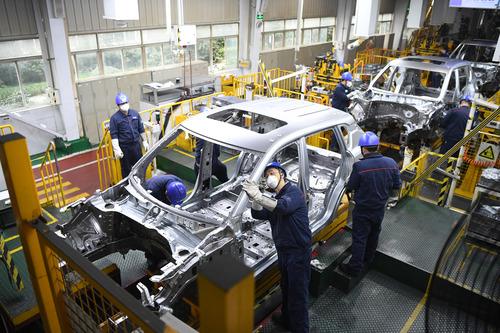TOKYO, May 26 (Xinhua) -- Though decoupling with China has been incited by some politicians recently, the world's largest developing country is set to "remain a critical manufacturing hub for most multinational companies for the foreseeable future," Japanese media have said.
"Moving supply chains out of China is likely to be a trickier and more gradual process than it at first appears," James Crabtree, associate professor in practice at the Lee Kuan Yew School of Public Policy at the National University of Singapore, said in an article published on the Nikkei Asian Review on Wednesday.
At present, China enjoys one obvious advantage -- its economy is open for business, while manufacturers in rivals such as Malaysia and India are still under lockdown, he said, adding that as the world races to find new sources of masks and personal protective equipment, China will "win more business, not less."
In the long run, alternative countries like Vietnam are much smaller than China and offer nothing like the professionalism, range and scale of manufacturing options found in Shenzhen and other Chinese hubs, he said.
"Global companies are hardly likely to rush to close Chinese factories or cancel sourcing contracts if the alternatives are less reliable and more expensive," he pointed out.
Tang Jin, senior research analyst at Mizuho Bank, said in an article on The Nihon Keizai Shimbun that Japanese enterprises manufacturing overseas are aimed at either the low costs or the sales markets, adding that the former need could be met by relocating their industries to Southeast Asian nations, while concerning the latter, Japanese companies have become a significant part of the Chinese supply chain with their dependence on the huge Chinese market, and the auto industry is a typical example.
China's yearly need of 2.5 million automobiles and profound auto industry chains will not only prevent Japanese companies from leaving its territory, but will encourage them to enlarge investments in the new four modernizations including electrification and intelligentization, the analyst said.
After the COVID-19 pandemic, it will take some time for European and American auto markets to recover, which will make Japanese auto enterprises pin a greater hope on the Chinese market, Tang said. Enditem




 A single purchase
A single purchase









